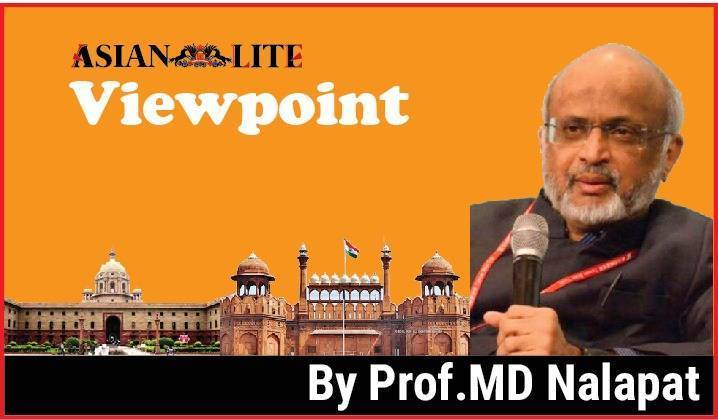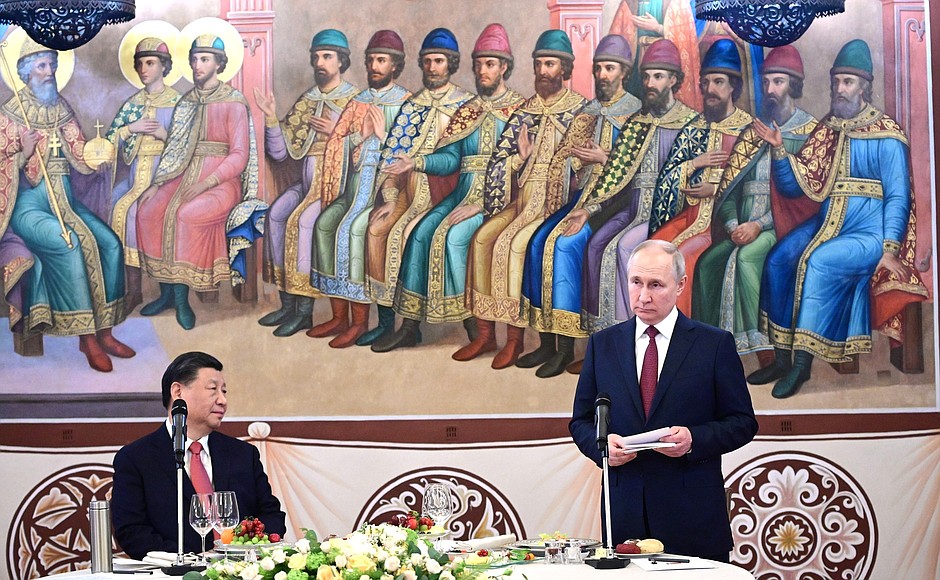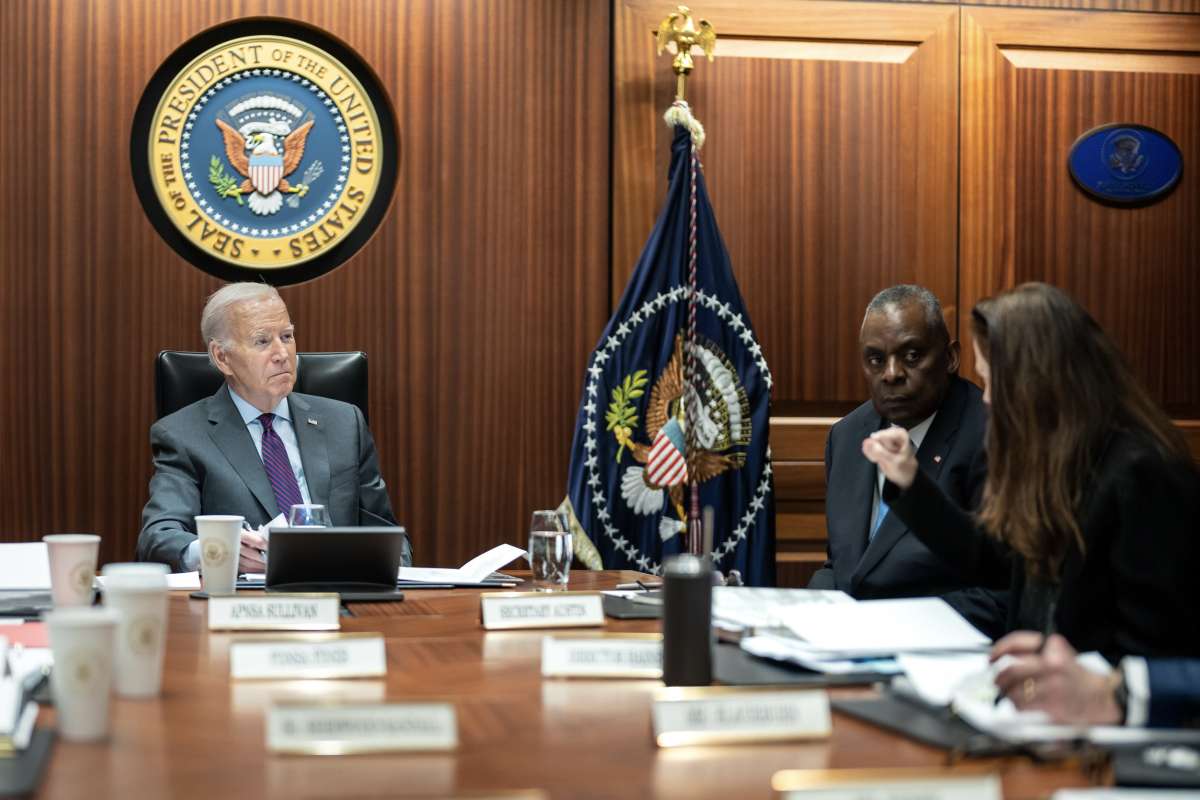Xi Jinping is the beneficiary of the Russophobia (masquerading as Putinophobia) that has blanketed both sides of the Atlantic, writes Prof. Madhav Das Nalapat

President Joe Biden of the US went ahead with the Trump plan of surrender of Afghanistan to the Taliban in 2021. The surrender document in 2020 at Doha signed by then Secretary of State Mike Pompeo was subsequently implemented by President Biden against the advice of elements in the Pentagon. Donald Trump claims that his administration would have retained the Bagram Air Base rather than surrender that too to the Taliban, although he remains silent on whether he would have continued to fund the logistics of the Afghan National Army (ANA).
This force was proving to be more than a match to the Taliban in several parts of Afghanistan. The ANA was denied all US support by President Biden, rendering inevitable its subsequent collapse. Either because of lack of familiarity with the ground situation or out of a politician’s reflex of always blaming the other side for a self-created problem, that the logistical “legs” of the ANA had been cut off by the US surrender in 2021, leaving that force helpless, went unmentioned by Biden when he blamed the ANA for the Taliban takeover.
During the six weeks following their takeover of the stricken country, several hundred commanders of the ANA were executed by the Taliban for their folly in having believed that the US would not once again leave Afghanistan to its fate, the way it had in the 1990s, in the process facilitating the takeover of much of the country by the Taliban in 1996. From 2001 onwards, commentary within the US strategic community had been altered to claim that Washington had consistently backed the Northern Alliance to fight the Taliban, when the opposite was the case during the Clinton Presidency.

Not the US or the EU but India together with Russia and Iran assisted the Northern Alliance under Ahmed Shah Massoud to continue to hold ground in the northern part of Afghanistan despite continuing and strenuous efforts by GHQ Rawalpindi-backed radicals to defeat them. During the 2001 war that saw the Taliban routed, US intelligence, air power and equipment were crucial in that outcome.
However, by 2005, reliance by Washington on GHQ Rawalpindi for ground level intel led to the funding and equipping of several hardcore Taliban elements that were recommended to the US by Pakistan Army Intelligence as “moderate” and “anti-Taliban”. Bush and Cheney joined hands with the arsonists in GHQ Rawalpindi who continued to pour fuel on the flames rather than help to douse them, even allowing key extremists to escape from Kunduz in November just weeks into the war in an airlift were why a war already won was transformed into a “forever” war.
A month later, Defence Secretary Rumsfeld deceitfully joined hands with the military dictator of Pakistan, General Pervez Musharraf, in asserting that the Kunduz airlift never took place. It was US assistance (and the encouragement that was provided to Taiwan and Japan) that helped the PRC to rise in the 1980s in order to “ensure Beijing stood with Washington against Moscow”.

The reality is that even without any US help, Mao would have worked against the Soviet Union, a country he feared. Again, it was US taxpayer dollars that gave the Taliban a second life from 2005 onwards, from which period it once again began to pose a severe challenge to both US-UK forces as well as to their Afghans allies. In the US, the bulk of those interested in the future of Afghanistan believe that the collective of radicals known as the Taliban became stronger despite, and not because of, US policy towards Afghanistan. Policy errors led to the Afghan war becoming a “forever war”.
The war against the Russian Federation through Ukrainian proxies that was launched by the US and some European countries in 2014, and which sharply accelerated in 2022, need not have been the curse to the global economy and stability that it is, had it been factored in within NATO that from the start, the war was unwinnable for Ukraine.
As a way of degrading Russian military capability, it was useless, as shown by the steady expansion of defence production, introduction of innovative battlefield tactics and weaponry, and mobilisation of manpower by the Russian Federation since 24 February 2022. Meanwhile, Ukrainian forces and much of the population are dependent on external charity in the way that residents of Gaza have been since the takeover of that enclave of the State of Palestine by Hamas in 2007.
Policymakers across both sides of the Atlantic remain trapped in the mists of Cold War 1.0 against Russia when that was replaced from the time of the Hong Kong handover on PRC terms by the UK in 1997. Xi Jinping is the beneficiary of the Russophobia (masquerading as Putinophobia) that has blanketed both sides of the Atlantic, in the process fulfilling the CCP’s objective of ensuring that Russia not follow the precedent set by China during Cold War 1.0 and team up with the US against China, as sought by Donald Trump and others such as Vivek Ramaswamy who are wholly American in their strategic thinking than European in the manner that so many within the Biden administration are.

Small wonder that the US under Biden has suffered a sharp reduction in respect and influence in those parts of the world which are not European, and who do not (unlike the Biden White House) believe that Europe continues as the fulcrum of global events and their consequences. Tucker Carlson did his country and the NATO alliance a favour by getting on record Vladimir Putin, stating that he was ready for an armistice (just as he was in April 2022 before Biden and Johnson persuaded Zelenskyy to instead fight on) based on the status quo.
Believing that Ukraine can get Russia to agree to a cease fire based on the pre-2014 effective boundaries is delusional, and the sooner Zelenskyy lives up to his election campaign promise of being a peacemaker, the better for him and his country. Meanwhile, people in the US and the EU are moving from grumbling to protesting at the way in which NATO is draining the coffers of member states by fuelling a conflict that was hopeless from the start.
Should the Russia-Ukraine war continue, the risk of a Russian attack on the Baltic states and on Polish defence fortifications will rise and not fall, and the CCP will further its goal of keeping the US mired in an unwinnable war in Europe. President Biden, with his Europe-focused administration, may believe that a stoppage of the Ukraine war will cost him the White House.
It would instead parachute him back for a second term, especially if the White House reduces the Ukraine component of aid legislation to a much smaller figure than $60 billion, and uses the savings to try and rescue the southern border from the demographic invasion that it has been witnessing in full view of television cameras. It is not the US Secretary for Homeland Security who is responsible for such a failure to protect US citizens from an invasion from the southern border, but the President of the United States.
ALSO READ: Global Delegation Visits Gujarat’s Education Review Centre

